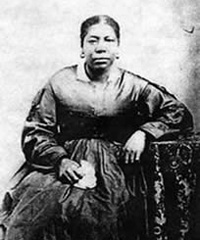History of African Americans in Utah
== History of African Americans in Utah ==
The history of African Americans in Utah is a rich and complex narrative that spans several centuries, beginning with the early exploration and settlement of the region and continuing through the present day. This article explores the significant events, individuals, and communities that have shaped the African American experience in Utah.
Early Exploration and Settlement[edit | edit source]
The first African Americans to arrive in Utah were likely part of the Spanish expeditions in the 16th and 17th centuries. However, it was not until the 19th century that African Americans began to establish a more permanent presence in the region.
In 1822, Jim Beckwourth, a mixed-race African American mountain man, played a significant role in the exploration of the American West, including parts of Utah. Beckwourth's contributions to the fur trade and his interactions with Native American tribes were notable during this period.
The Mormon Pioneers[edit | edit source]
The arrival of the Mormon pioneers in 1847 marked a significant turning point in Utah's history. Among the early Mormon settlers were several African American individuals, including Green Flake, Hark Lay, and Oscar Crosby, who were enslaved by Mormon families. These individuals played crucial roles in the early development of the Salt Lake Valley.
The Civil War and Emancipation[edit | edit source]
The American Civil War (1861-1865) and the subsequent Emancipation Proclamation had a profound impact on African Americans in Utah. The end of slavery allowed formerly enslaved individuals to seek new opportunities and establish their own communities.
The 20th Century[edit | edit source]
The early 20th century saw a gradual increase in the African American population in Utah, particularly in urban areas such as Salt Lake City and Ogden. The Great Migration brought many African Americans to the West in search of better economic opportunities and to escape the oppressive conditions of the Jim Crow laws in the South.
During World War II, the demand for labor in defense industries led to a further influx of African Americans to Utah. The establishment of Hill Air Force Base and other military installations provided employment opportunities and contributed to the growth of African American communities.
Civil Rights Movement[edit | edit source]
The Civil Rights Movement of the 1950s and 1960s had a significant impact on African Americans in Utah. Local leaders and activists, such as Calvin L. Rampton and Robert B. Harris, played key roles in advocating for civil rights and social justice. The movement led to the desegregation of public facilities and schools and increased political representation for African Americans.
Contemporary Period[edit | edit source]
Today, African Americans in Utah continue to contribute to the state's cultural, economic, and political life. Organizations such as the Utah Black Chamber and the Utah NAACP work to promote the interests and well-being of African American communities. Annual events like Juneteenth celebrations and the Utah Black History Museum help to preserve and share the rich history of African Americans in Utah.
Related Pages[edit | edit source]
- African American history
- Mormon pioneers
- Great Migration
- Civil Rights Movement
- Jim Beckwourth
- Emancipation Proclamation
- Hill Air Force Base
- Juneteenth
This article is a African American–related stub. You can help WikiMD by expanding it!
Search WikiMD
Ad.Tired of being Overweight? Try W8MD's physician weight loss program.
Semaglutide (Ozempic / Wegovy and Tirzepatide (Mounjaro / Zepbound) available.
Advertise on WikiMD
|
WikiMD's Wellness Encyclopedia |
| Let Food Be Thy Medicine Medicine Thy Food - Hippocrates |
Translate this page: - East Asian
中文,
日本,
한국어,
South Asian
हिन्दी,
தமிழ்,
తెలుగు,
Urdu,
ಕನ್ನಡ,
Southeast Asian
Indonesian,
Vietnamese,
Thai,
မြန်မာဘာသာ,
বাংলা
European
español,
Deutsch,
français,
Greek,
português do Brasil,
polski,
română,
русский,
Nederlands,
norsk,
svenska,
suomi,
Italian
Middle Eastern & African
عربى,
Turkish,
Persian,
Hebrew,
Afrikaans,
isiZulu,
Kiswahili,
Other
Bulgarian,
Hungarian,
Czech,
Swedish,
മലയാളം,
मराठी,
ਪੰਜਾਬੀ,
ગુજરાતી,
Portuguese,
Ukrainian
Medical Disclaimer: WikiMD is not a substitute for professional medical advice. The information on WikiMD is provided as an information resource only, may be incorrect, outdated or misleading, and is not to be used or relied on for any diagnostic or treatment purposes. Please consult your health care provider before making any healthcare decisions or for guidance about a specific medical condition. WikiMD expressly disclaims responsibility, and shall have no liability, for any damages, loss, injury, or liability whatsoever suffered as a result of your reliance on the information contained in this site. By visiting this site you agree to the foregoing terms and conditions, which may from time to time be changed or supplemented by WikiMD. If you do not agree to the foregoing terms and conditions, you should not enter or use this site. See full disclaimer.
Credits:Most images are courtesy of Wikimedia commons, and templates Wikipedia, licensed under CC BY SA or similar.
Contributors: Prab R. Tumpati, MD





